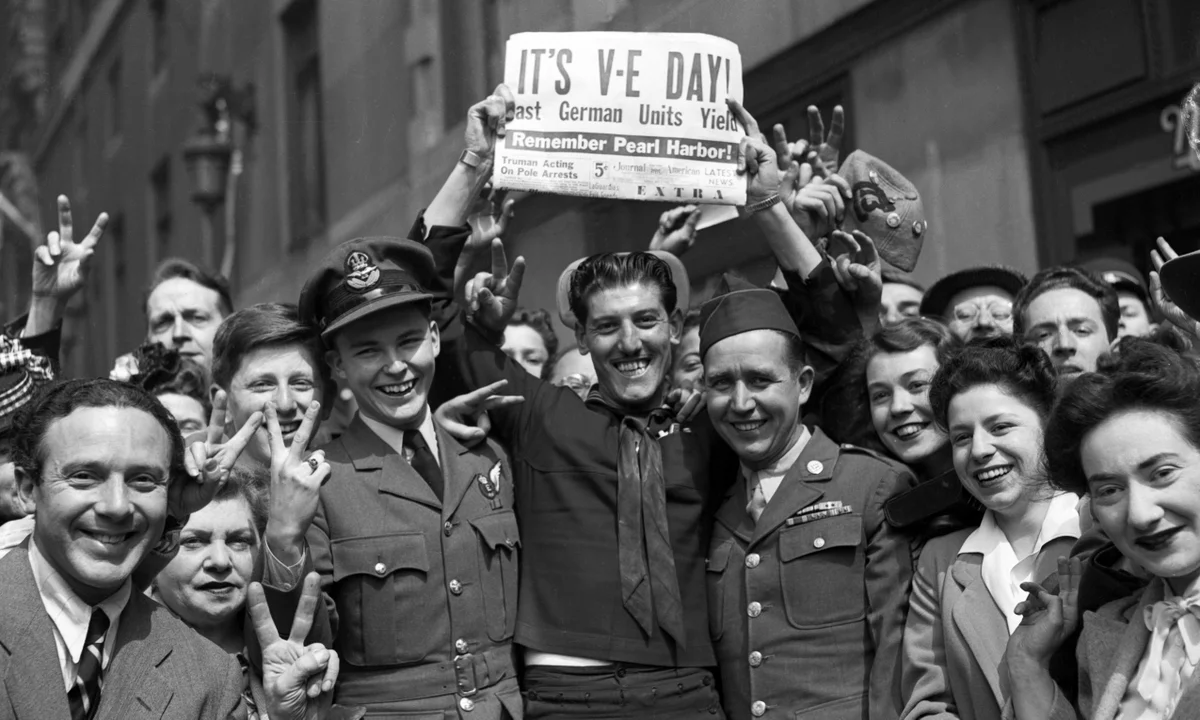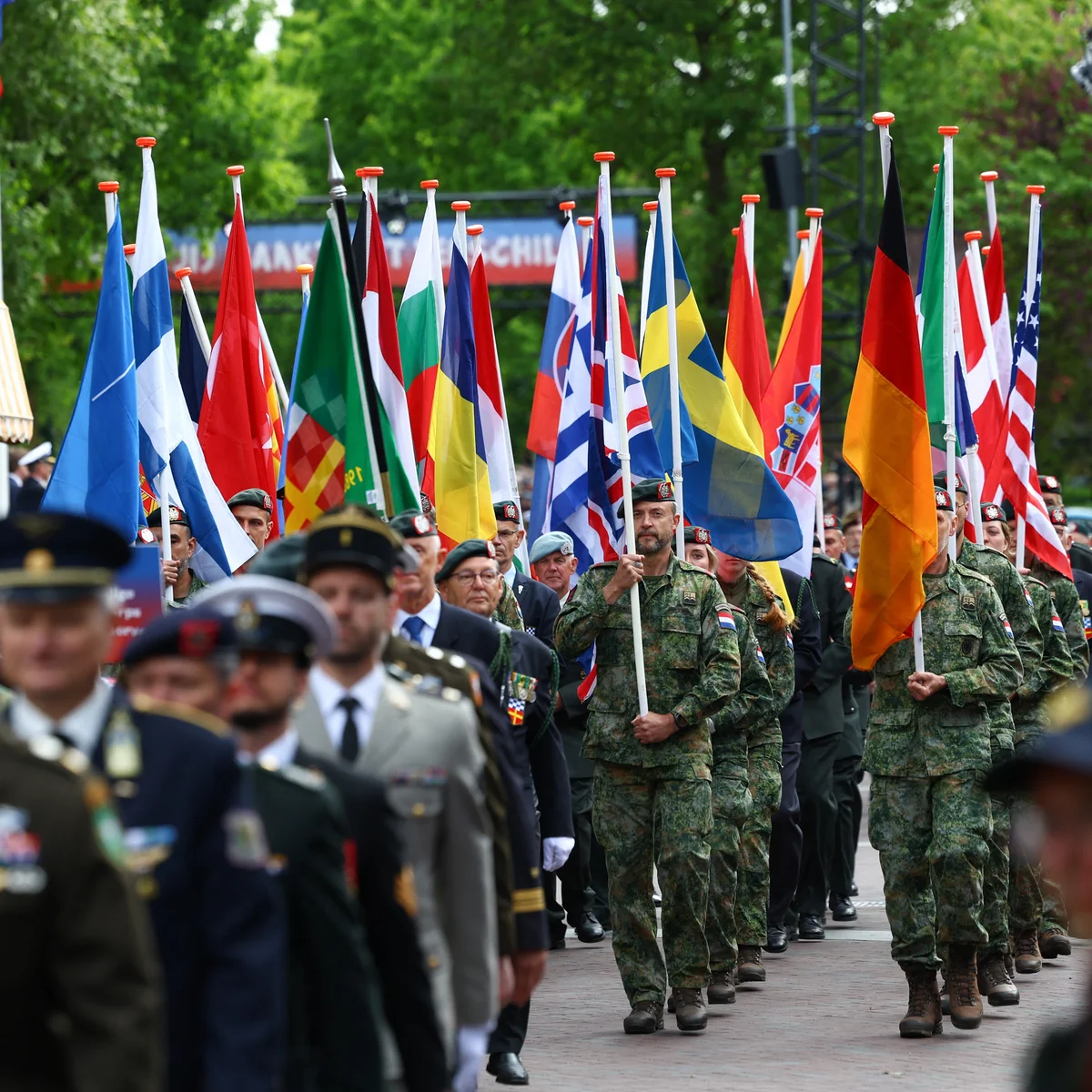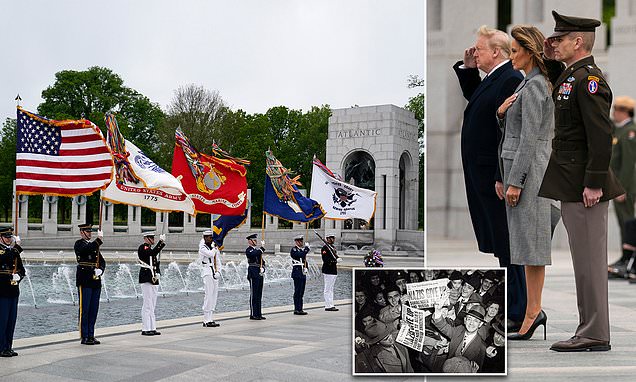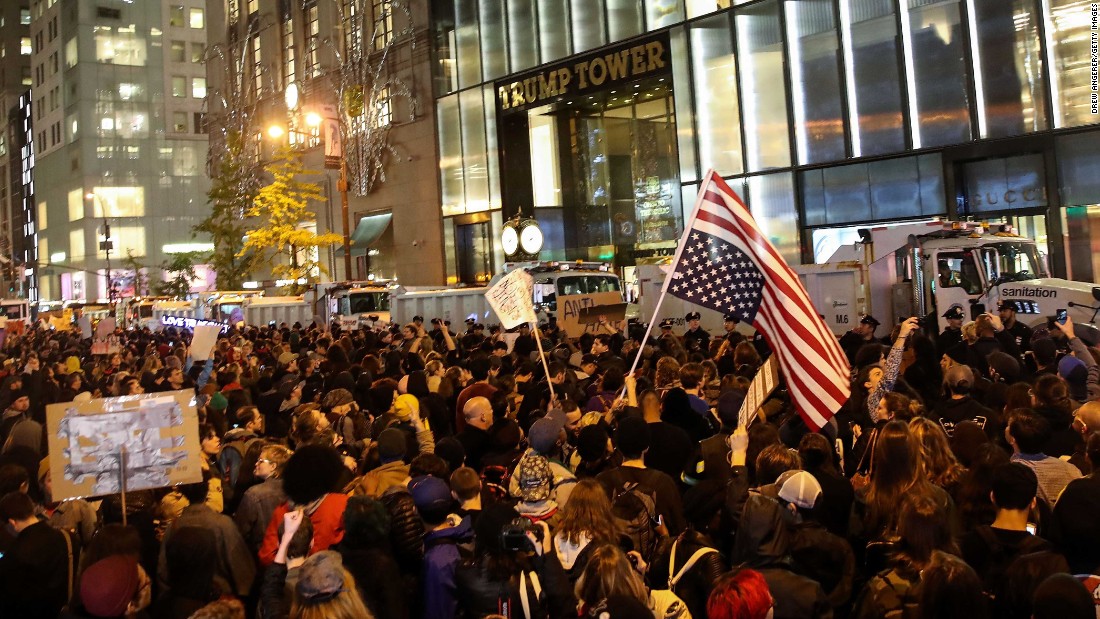A Day That Changed the World
VE Day: 80 Years On, Why the Lessons of Victory Still Matter in a Divided World. Eighty years ago today, May 8, 1945, the world witnessed the official end of World War II in Europe. Known as Victory in Europe Day—or VE Day—this historic moment marked Nazi Germany’s unconditional surrender to Allied forces. Streets from London to New York erupted in joy. Flags waved, tears flowed, and strangers embraced in shared relief.
Now, in 2025, the world pauses not just to remember—but to re-examine what victory truly means in an era plagued by conflict, misinformation, and social division.
A Global Flashpoint with Lasting Impact
The Second World War wasn’t just a military conflict. It was a seismic shift in global power, ideology, and civilization. VE Day signified not just the collapse of a tyrannical regime, but the birth of a new international order. The United Nations, the modern European project, and even America’s postwar economic dominance all trace their roots to this turning point.
Yet today, that global order is under threat—from rising nationalism, eroding alliances, and new types of warfare that require more than tanks and treaties.
Modern Lessons from a Wartime Generation
The so-called “Greatest Generation” who lived through WWII endured unimaginable sacrifice. They understood community, duty, and perseverance in the face of overwhelming odds. These values helped rebuild cities, economies, and international trust.
In 2025, where leadership is often defined by clickbait, and resilience is tested by the pace of modern life, VE Day: 80 Years On, reminds us of the power of unity and long-term thinking. It urges us to ask: Are we living up to that legacy?
Why Business Leaders Should Care
For the business community, VE Day holds lessons far beyond history textbooks. Wartime innovation—from radar to computing—laid the foundation for modern technology. Economic recovery plans like the Marshall Plan proved how bold investment can rebuild entire societies.
In today’s boardrooms, the message is clear: Sustainable success often comes from collaboration, long-term planning, and ethical leadership—even in the face of crisis.
Commemorating Without Glorifying War
It’s tempting to romanticize the past, but VE Day was not a parade for conquest—it was a memorial for loss. Over 60 million people died in WWII. Entire cities were flattened. Families were torn apart.
This 80th anniversary is a time for somber remembrance, not hollow celebration. It’s a moment to acknowledge the human cost of division—and why peace must always be protected, not presumed.
The New Wars We Face
Today’s wars aren’t always fought with bullets and bombs. They’re fought online—through disinformation, cyberattacks, economic sanctions, and culture wars. Authoritarianism is evolving, not disappearing.
As we commemorate VE Day, we must ask: Are we prepared for these modern battles? Are we equipped—ethically, technologically, and mentally—to defend the values that brought us peace in 1945?
A Fragile Europe and a Divided West
The unity that defined the Allies in 1945 seems distant now. Brexit reshaped Europe’s political landscape. NATO faces ongoing challenges. Transatlantic relationships are under strain. Meanwhile, war in Eastern Europe is no longer a relic of the past—it’s unfolding in real time.
VE Day’s legacy demands we not only look backward but also inward. What does collective security look like in 2025? And are we doing enough to preserve it?
Youth, Memory, and the Risk of Forgetting
With the last generation of WWII veterans now in their 90s, the memory of VE Day risks fading into abstraction. For Gen Z and Gen Alpha, this history is more likely to be a video game level or a TikTok hashtag than lived experience.
That’s why this, VE Day: 80 Years On, anniversary matters. It’s not just about wreaths or flyovers—it’s about storytelling, education, and passing on the emotional weight of what was won and what could be lost again.
How Businesses and Brands Are Commemorating
From limited-edition campaigns to charitable initiatives, companies are increasingly finding ways to tie historical awareness into their CSR strategies. But meaningful action speaks louder than marketing. Supporting veterans, investing in peace education, and promoting diversity are modern ways to honor the values VE Day represents.
The Global South’s Contribution and Recognition
VE Day is often framed through a Euro-American lens. But soldiers from Africa, India, the Caribbean, and other parts of the Global South fought and died in the same war. Their stories are too often underrepresented.
This 80th anniversary should be a reckoning, too—a chance to tell fuller truths and honor global contributions that shaped the outcome of WWII.
The Economic Echoes of 1945 in 2025
Postwar recovery wasn’t just about rebuilding cities; it was about reshaping economies. Infrastructure spending, housing projects, and social reforms were key pillars of recovery. In today’s inflationary, uncertain climate, governments face similar decisions: to invest boldly or retreat cautiously.
VE Day’s legacy suggests that rebuilding requires courage—and that prosperity follows vision.
A Time to Reflect and Realign
As the world marks 80 years since VE Day, we are called not just to remember, but to reflect. What kind of world are we building now? Are we learning from the past or repeating its mistakes? Are we choosing cooperation over conflict, empathy over extremism?
History is not just something to study—it’s something to live by. On this 80th VE Day, that may be the greatest victory of all.





